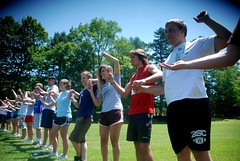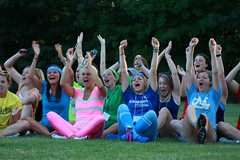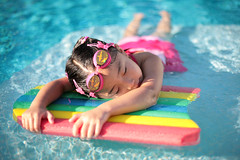 In an earlier post, we discussed one of the primary concerns parents have about summer camp – will my child be safe? Today, we wanted to talk about the people who care for our kids at camp and keep them safe; how they are chosen and trained to do their jobs. When you’re putting the care of your children into other people’s hands, it’s important to have confidence in their caretakers. At Camp Laurel, not only does every person who works at camp have to love working with kids, they all also have to be good at it and have the skills to be a success.
In an earlier post, we discussed one of the primary concerns parents have about summer camp – will my child be safe? Today, we wanted to talk about the people who care for our kids at camp and keep them safe; how they are chosen and trained to do their jobs. When you’re putting the care of your children into other people’s hands, it’s important to have confidence in their caretakers. At Camp Laurel, not only does every person who works at camp have to love working with kids, they all also have to be good at it and have the skills to be a success.
Building a good staff begins with selecting the right personnel. We focus year round on finding, recruiting, and selecting the best qualified counselors to live and work with the children. Most of our head counselors, group leaders, campus leaders and department heads have been with their camps at least five years, and some have returned every summer for 20 years! All are professionally-trained educators and coaches who have proven their ability to instruct a particular activity. The counselors, who have the most direct contact with your camper, have all completed at least their first year of college (with many further on), and go through a rigorous interview and selection process, and reference and background checks. We recruit counselors from over 100 different colleges around the country and many fine universities throughout the world. Just over half of the counselors return from year to year, with many only ending their counseling careers when they graduate college and move on to real-world schedules (no more free summers!)
Of course, selecting the right people is only the beginning of the process of creating a successful staff. The counselors must also be trained and oriented to the camp’s particular processes, schedules and procedures. To do so, all staff must complete a week-long Orientation. We are especially lucky to have large groups of former campers who return to be counselors. They know the camp traditions and songs, and, more importantly, they remember what camp looks like from the point of view of the campers. At Orientation, they can share their experiences with new staff members and serve as ambassadors for our particular mission and traditions.

The seven-day day Orientation is filled with training in individual responsibilities, working with the campers, and of course, health, safety, and emergency procedures. Such intensive training ensures that counselors aren’t just up to speed with the programs but also child development and the best techniques for working with kids in the cabins. We bring in outside speakers to provide info on contemporary issues for schools and homes as well as advanced skills for working with other people’s children and those responsibilities.We also meet with counselors and go over each individual child’s information and specific issues that might arise over the course of the summer. By the time the campers arrive, the counselors have a great understanding of every child in their care, gleaned from information from the director’s meetings with parents, the camper’s profile information forms, and past years’ knowledge of returning campers. Even the group and campus leaders know the children well, since they are mostly veterans who watch the children grow over time. Orientation is fun, and the trainers work hard to create a feeling of unity and team amongst the staff.
Beyond the formal week long Orientation, over half of the individual activity instructors (waterfront, rock climbing, mountain biking, etc.) come to camp early, with key staff and counselors often training three weeks prior to Orientation. Counselors who are responsible for specific program areas are also trained to write lesson plans and taught how to execute a fun and instructional activity period. Each attends an entire training day devoted to teaching kids their particular activities and making it fun. Finally, every camp staff member is well-trained in general safety procedures and first aid, with additional courses and certifications dependent on counselor responsibilities.
 All this training and teamwork that begins in Orientation quickly spills over into a great summer for the kids. But the seven days of Orientation before camp starts is just the beginning. Camp staff attend weekly meetings and trainings, and everyone receives ongoing support from their supervisors on a daily basis. Without a well-trained staff, no camp can have a successful season. The right people – people who love children and are good at working with them – create the foundation for a terrific summer of experiences and memories for the most important people on campus, your children.
All this training and teamwork that begins in Orientation quickly spills over into a great summer for the kids. But the seven days of Orientation before camp starts is just the beginning. Camp staff attend weekly meetings and trainings, and everyone receives ongoing support from their supervisors on a daily basis. Without a well-trained staff, no camp can have a successful season. The right people – people who love children and are good at working with them – create the foundation for a terrific summer of experiences and memories for the most important people on campus, your children.
Olivia, Guest Contributor




